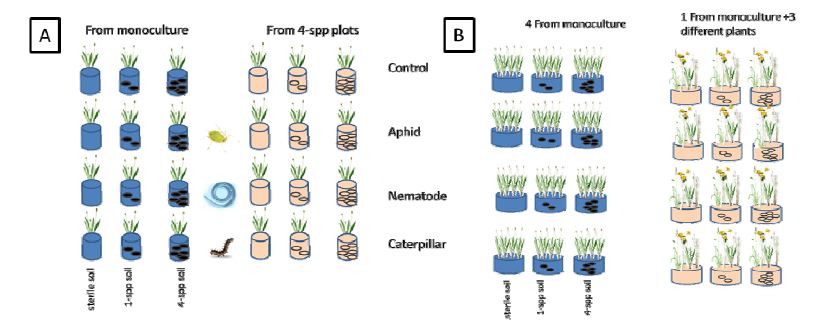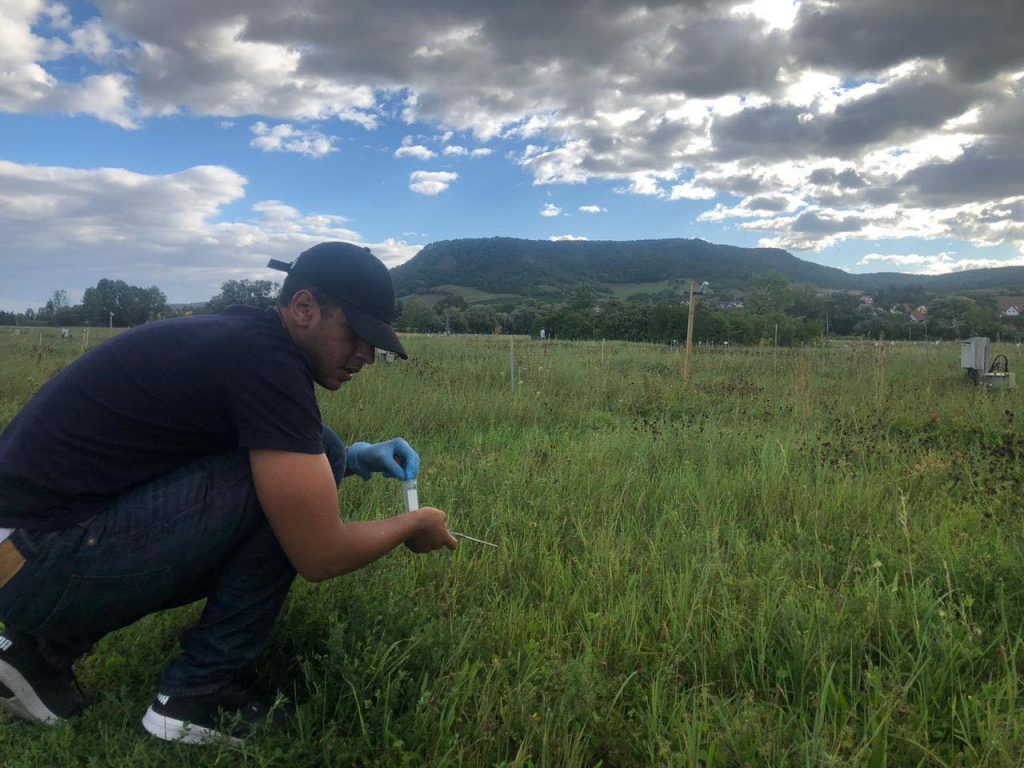Microbiome & stress
Plant microbiomes and biotic stress

Neuherberg
Principle Investigator
Phone: +49 89 3187 2304

Neuherberg
Principle Investigator
Phone: +49 89 3187 3054

Freising
Principle Investigator
Phone:+49 81 6171 3496

Neuherberg
PhD student
Phone: +49 89 3187 43043
Changes in biotic interactions are supposed to be a key driver of biodiversity effects on ecosystem processes. Here, plant-microbe interaction are of key importance as they affect also the interplay of plants and other organisms such as insects. Plant-associated microbiomes are either transferred from generation to generation via seeds or acquired from soil during plant growth.

We hypothesize that selection in plant communities in the Jena Experiment has led to shifts in the seed microbiome that can be complemented, but not completely substituted, by the soil microbiome. To test this hypothesis, we will investigate the role of soil and plant history on the associated soil, plant and seed microbiomes for the efficiency of plants to cope with biotic stressors as an example of a specific biodiversity dependent ecosystem function.

at the Jena field experiment
We will address the following research questions: 1) How does plant- and soil history affect the plant microbiome? 2) What are key genes of the plant-associated microbiome driving the interaction between plants, microbes and invertebrates? 3) Which key genes are transferred via the seed microbiome to the next generation and which are provided by the soil as a result of different plant- and soil history?
To address those questions we will make use of the central field experiment and characterize the seed microbiome of Plantago lanceolata, Trifolium pratense and Bromus erectus grown in monoculture or on 4-species plots. Further, we will participate in the Ecotron experiment and analyse treatments, which contain P. lanceolata infested with herbivores. Additionally we will perform a Greenhouse experiment, where we will test additional herbivores and soil and plant history effects.
